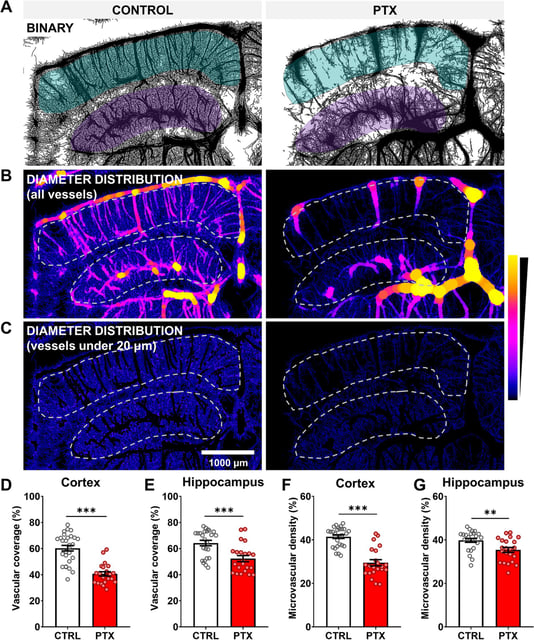Overview
- University of Oklahoma researchers identified that chemo brain and aging share reduced resting and active cerebral blood flow, disrupted blood-brain barrier integrity and accumulation of senescent “zombie” cells.
- They found chemotherapy damages endothelial cells, causing them to become senescent and secrete inflammatory factors that compromise the blood-brain barrier and impair cognition.
- In aged mouse models, senolytic drugs that selectively eliminate senescent cells restored microvascular density and improved learning and memory performance.
- The optimal window for administering senolytics in mice was pinpointed at 16 months—roughly equivalent to 50–55 years in humans—to achieve the greatest protective effect on brain vasculature.
- Administering senolytics after this midlife window still clears senescent cells but does not reverse established cognitive deficits, underscoring the need for timely treatment.
